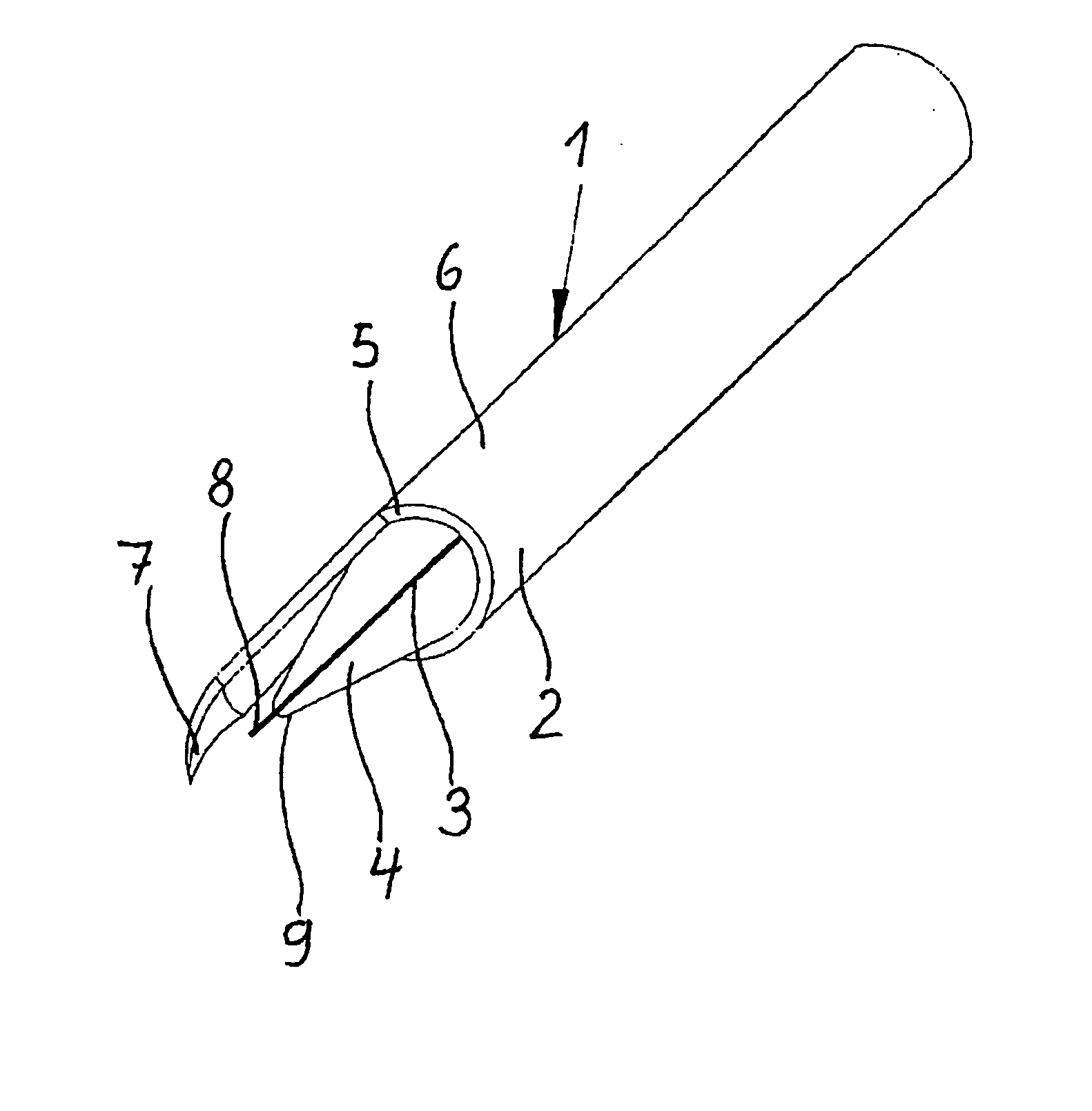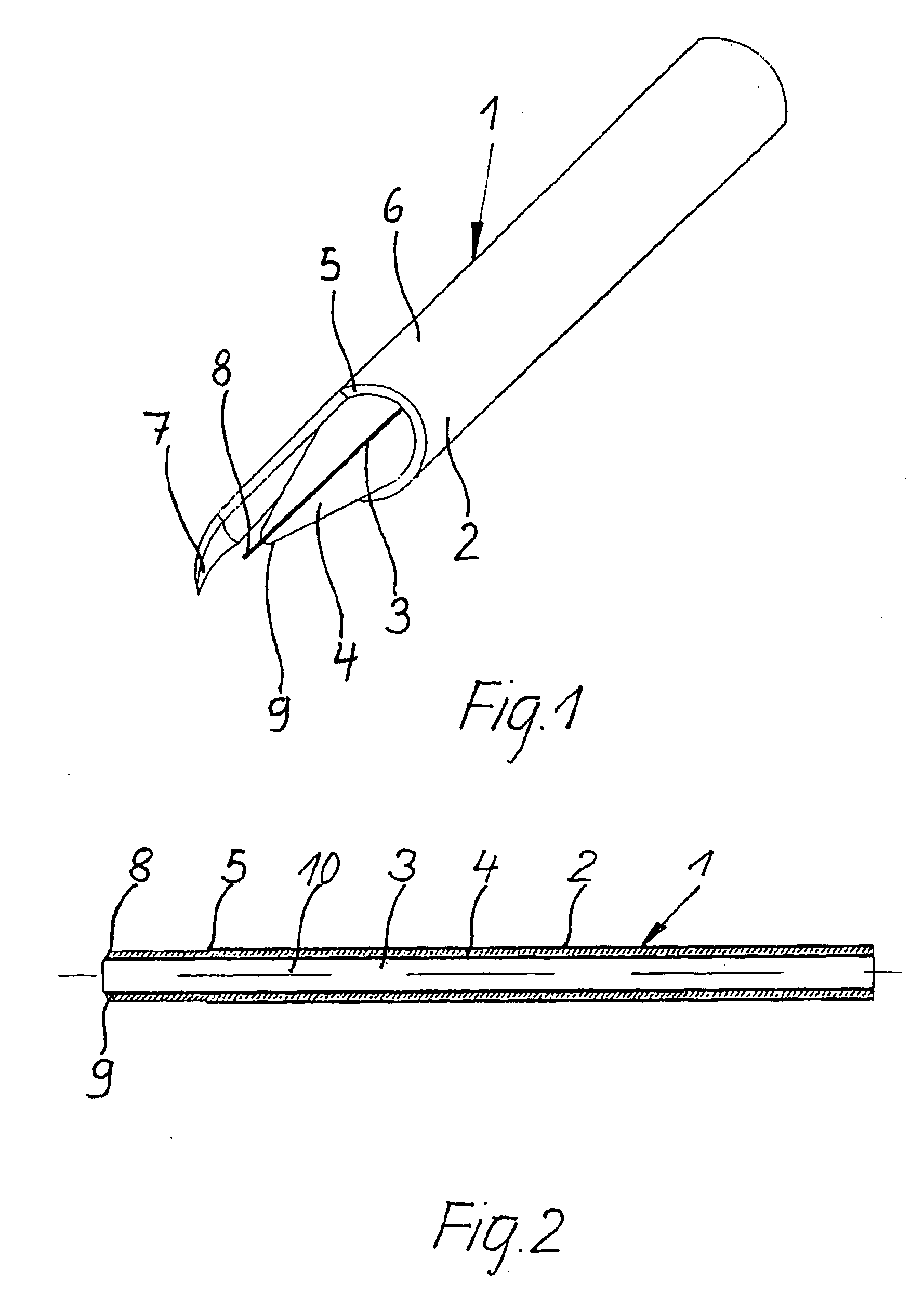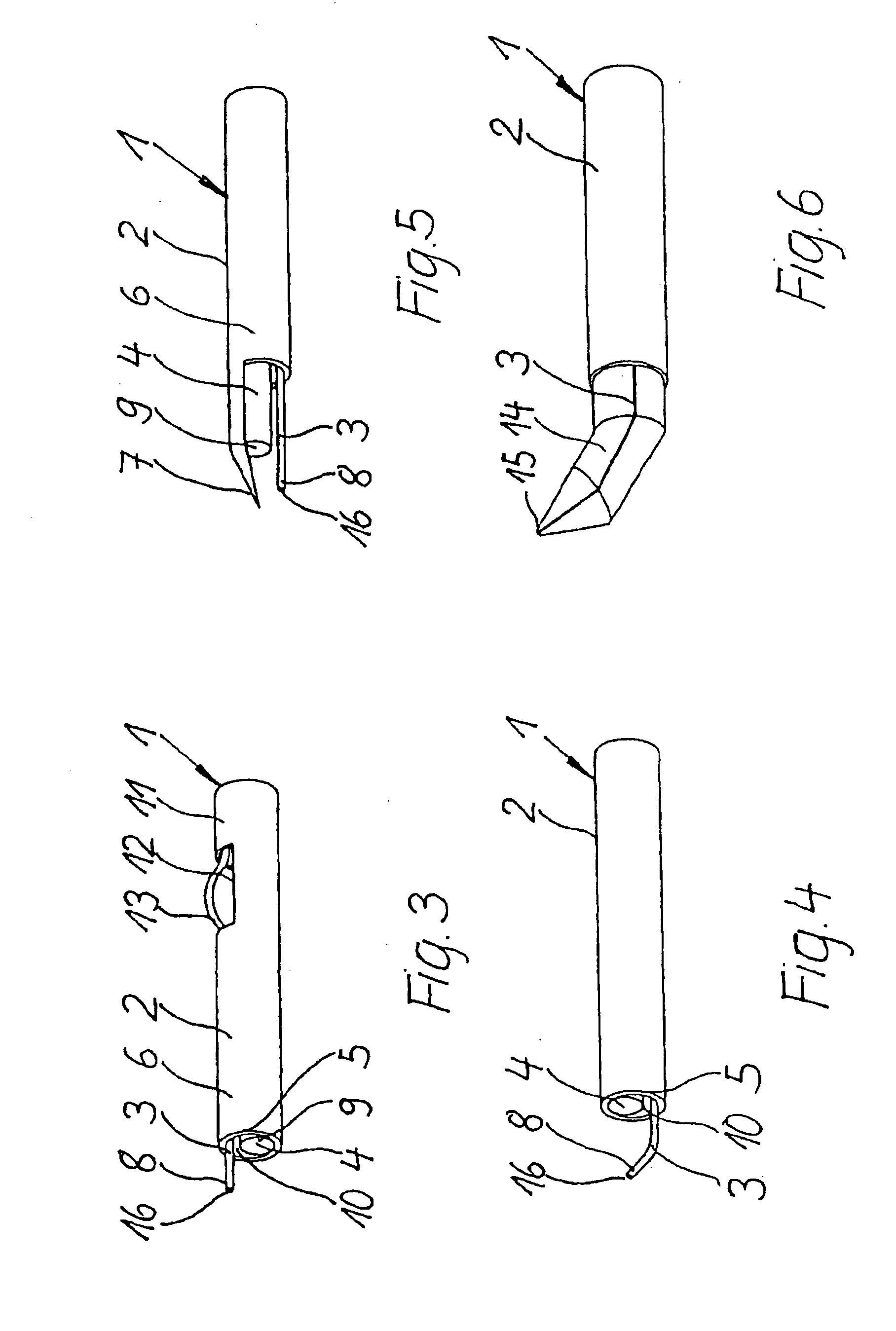Electrical probe for microsurgery
a micro-surgery and electric probe technology, applied in the field of micro-surgery electric probes, can solve the problems of increasing the stress and risk of patents, unfavorable tissue damage, and the performance of the operation itself, and achieves the effects of simple operation, low cost, and easy and safe handling
- Summary
- Abstract
- Description
- Claims
- Application Information
AI Technical Summary
Benefits of technology
Problems solved by technology
Method used
Image
Examples
Embodiment Construction
[0040] The illuminated intraocular electric probe 1 shown in FIG. 1 comprises a bare metal or partially insulated outer electrode 2 shaped as a hollow cylinder and an electrically conductive, axially insulated inner electrode 3 arranged coaxial to the outer electrode 2. The inner electrode 3 which is provided as a coated wire is constructed within the μm range. A light guide 4 enveloping the inner electrode 3 is arranged between the outer electrode 2 and the inner electrode 3, is constructed as a hollow cylinder and serves to conduct light and as insulate between the outer electrode 2 and inner electrode 3, and is provided, e.g., in the form of a glass rod or a glass capillary 14 which encloses the inner electrode and, at the same time, insulates it from the outer electrode and which is connected when working with the electric probe 1 to a light-generating unit, not shown in more detail.
[0041] In the first embodiment example of the electric probe 1 shown in FIG. 1, the inner electr...
PUM
 Login to View More
Login to View More Abstract
Description
Claims
Application Information
 Login to View More
Login to View More - R&D
- Intellectual Property
- Life Sciences
- Materials
- Tech Scout
- Unparalleled Data Quality
- Higher Quality Content
- 60% Fewer Hallucinations
Browse by: Latest US Patents, China's latest patents, Technical Efficacy Thesaurus, Application Domain, Technology Topic, Popular Technical Reports.
© 2025 PatSnap. All rights reserved.Legal|Privacy policy|Modern Slavery Act Transparency Statement|Sitemap|About US| Contact US: help@patsnap.com



